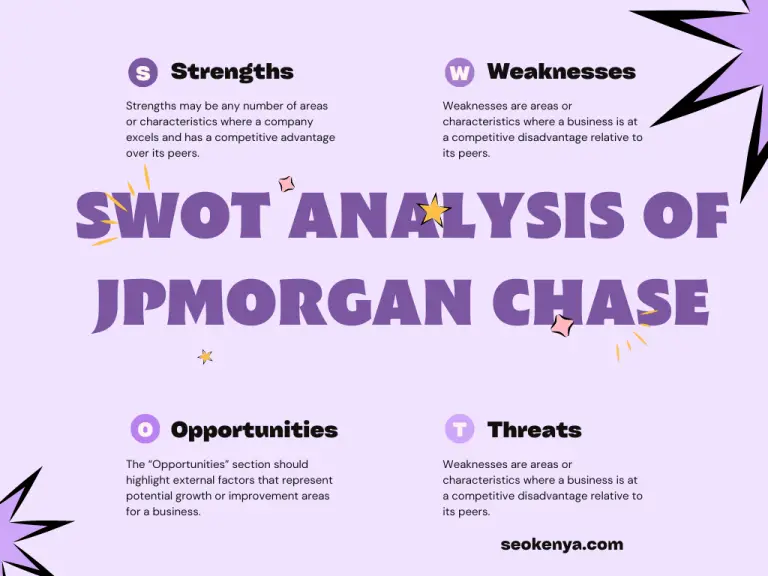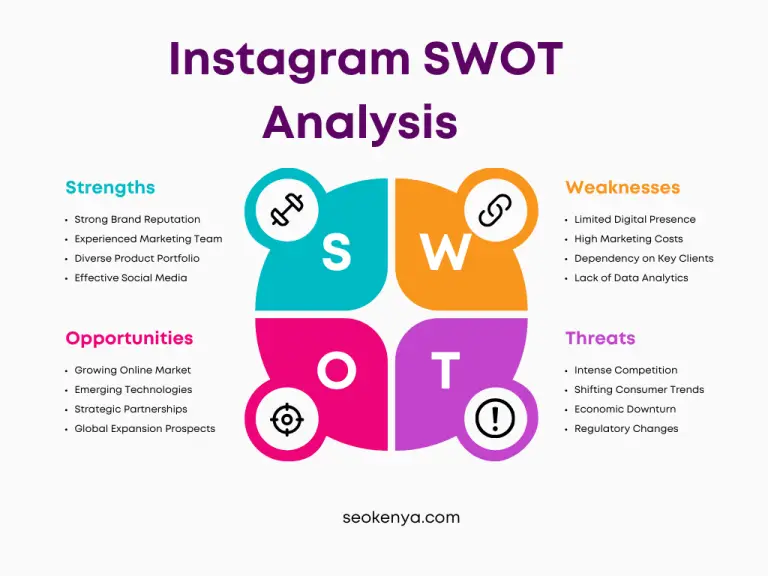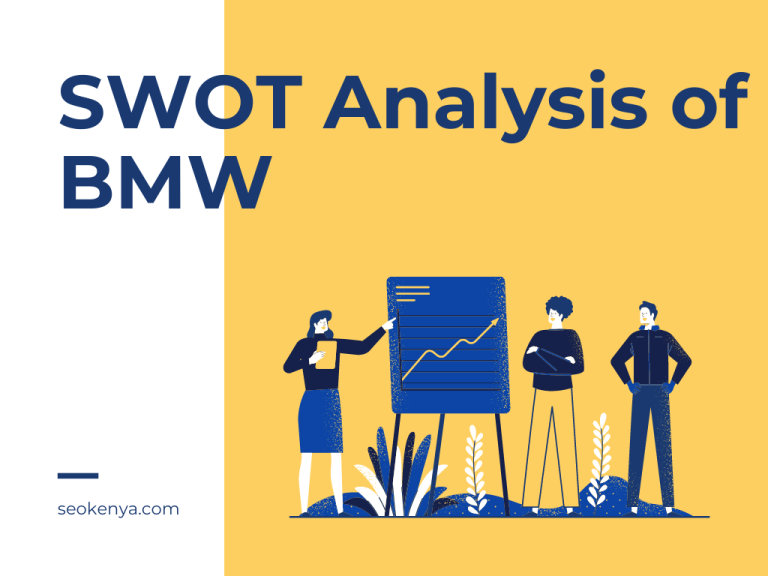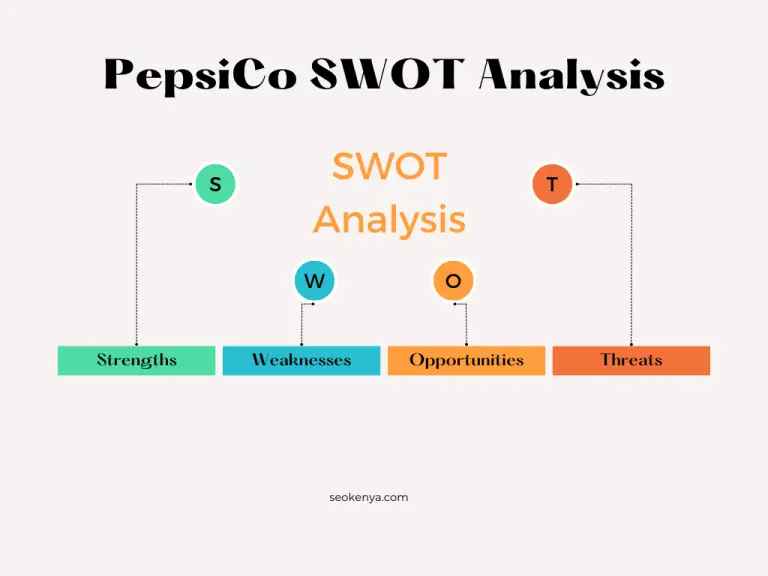A Comprehensive SWOT Analysis of Airbus: Strengths, Weaknesses, Opportunities & Threats For Airbus
Airbus is a European multinational aerospace and defense corporation with its headquarters in Toulouse, France.
The company is one of the largest aerospace and defense companies in the world and has a major presence in the commercial aerospace industry.
AIRBUS COMPANY SUMMARY DETAILS
Here is a table with a summary of key details about Airbus:
| Detail | Information |
| Company Name | Airbus SE |
| Headquarters | Leiden, Netherlands |
| Founded | 1970 (as Airbus Industrie) |
| Industry | Aerospace |
| Products | Commercial aircraft, helicopters, defense & space products |
| CEO | Guillaume Faury (since 2019) |
| Employees | Around 130,000 (as of 2022) |
| Major Aircraft Families | A320, A330, A350, A380 |
| Major Competitors | Boeing, Embraer, Bombardier |
| Revenues | €58.8 billion (2022) |
| Net Income | €4.25 billion (2022) |
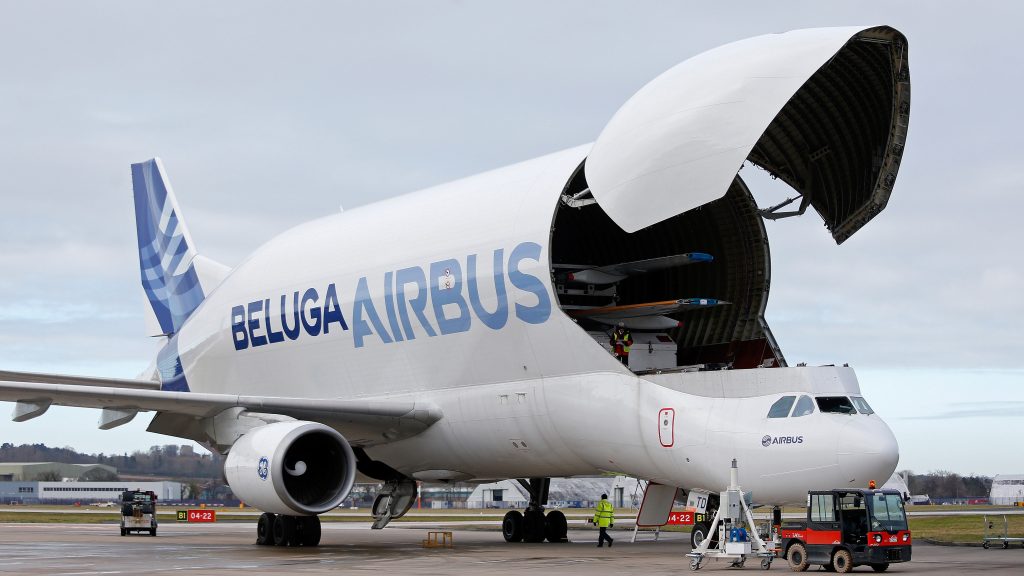
SWOT Analysis of Airbus
The purpose of this article is to perform a comprehensive SWOT analysis of Airbus to gain a deeper understanding of the company’s strengths, weaknesses, opportunities, and threats.
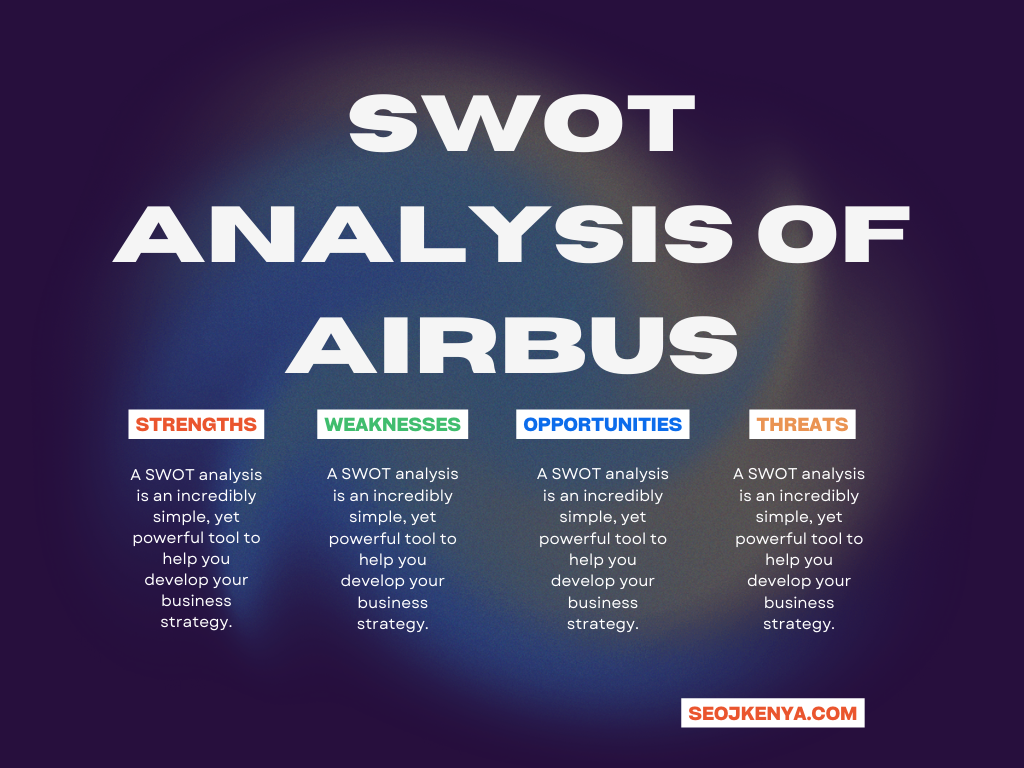
Strengths of Airbus
- Strong brand recognition: Airbus has a strong brand image and recognition globally, which helps the company to maintain its market position and attract customers.
- Diversified product portfolio: Airbus offers a diverse range of products and services, including commercial aircraft, helicopters, military aircraft, satellites, and defense systems. This diversification helps the company to mitigate risk and reduce the impact of market fluctuations.
- Strong financial performance: Airbus has a strong financial performance, with solid revenue growth and a healthy balance sheet. The company has a large backlog of orders, which provides a steady source of future revenue.
- Global presence: Airbus has a strong global presence, with operations and customers in over 150 countries. This global reach helps the company to tap into new markets and increase its customer base.
Weaknesses of Airbus
- Dependence on a limited number of suppliers: Airbus is heavily dependent on a limited number of suppliers, which can lead to supply chain disruptions and increased costs.
- Complex organizational structure: The company has a complex organizational structure, with multiple divisions and subsidiaries. This can lead to inefficiencies and difficulty in decision making.
- Dependence on government funding: Airbus is heavily dependent on government funding for its defense projects, which can be impacted by changes in government policies or economic conditions.
- Challenges in the commercial aerospace industry: The commercial aerospace industry is facing significant challenges, including increased competition, rising fuel costs, and political and economic uncertainty.
- Production problems: Airbus has faced production problems in the past, which have caused delays and increased costs. This has had a negative impact on the company’s financial performance and reputation.
- Competition: Airbus faces strong competition from other aerospace companies, including Boeing and Lockheed Martin. This competition can make it difficult for the company to maintain its market share and profitability.
Opportunities of Airbus
- Growing demand for commercial aircraft: The global demand for commercial aircraft is expected to continue to grow, driven by population growth and economic development.
- Expansion into new markets: Airbus has the opportunity to expand into new markets, particularly in Asia and Africa, where the aerospace industry is growing.
- Increased focus on sustainable aviation: The aviation industry is placing a greater emphasis on sustainable aviation, including the use of more fuel-efficient aircraft and alternative fuels. Airbus has the opportunity to lead the industry in this area.
- Expansion into new product areas: Airbus has the opportunity to expand into new product areas, such as urban air mobility, to capture additional revenue streams.
- Technological advancements: Advances in technology are constantly reshaping the aviation industry, and Airbus has the opportunity to stay ahead of the curve by investing in research and development.
Threats of Airbus
- Competition from established players: Airbus faces significant competition from established players in the aerospace industry, such as Boeing and Embraer.
- Political and economic uncertainty: The aerospace industry is subject to political and economic uncertainty, which can impact the demand for commercial and military aircraft.
- Increase in fuel costs: The cost of fuel is a major factor in the aviation industry and can have a significant impact on the financial performance of Airbus.
- Technological advancements: The aerospace industry is subject to rapid technological advancements, which can lead to the obsolescence of existing products and the need for significant investments in research and development.
- Environmental concerns: The aviation industry is facing increasing pressure to reduce its carbon footprint and mitigate its impact on the environment. This could lead to regulations that increase costs for Airbus and other companies in the industry.
Conclusion
In conclusion, Airbus is a strong player in the aerospace industry, with a diversified product portfolio, strong brand recognition, and a strong global presence.
However, the company faces significant challenges, including dependence on a limited number of suppliers, a complex organizational structure, and dependence on government funding.
To remain competitive, Airbus will need to continue to focus on its strengths, expand into new markets, and focus on sustainable aviation. Additionally, the company will need to be
